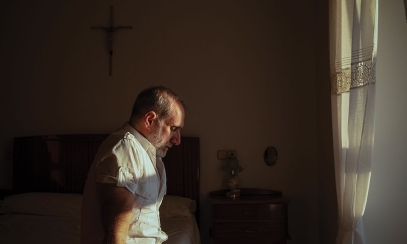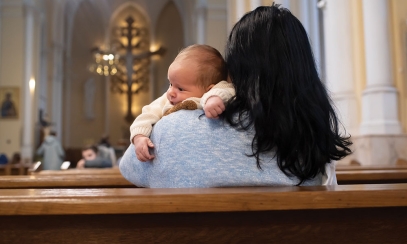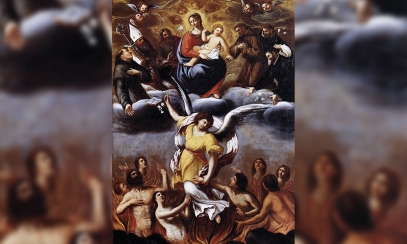
Why we struggle to pause and reflect
With the start of every new “thing” (new year, new season, new stage in life), I find it very difficult to stop and consider the previous “thing” (the previous year, the previous season, or the previous stage in life). And I find myself just kind of doing the same things over and over again. There seems to be no end in sight. What do I do?
With the start of every new “thing” (new year, new season, new stage in life), I find it very difficult to stop and consider the previous “thing” (the previous year, the previous season, or the previous stage in life). And I find myself just kind of doing the same things over and over again. There seems to be no end in sight. What do I do?
I am so grateful for your insight into your own patterns of behavior (as well as your evaluation that you need to change). I think you described something that is more common to most people than nearly any other reality. It is not just you but our culture that breeds “reflectionless” lives. We are so caught up in the need to “go, go, go” and to move on to the next thing that we have lost the ability to pause. Not only that, but we are constantly distracted by the thoughts in our own heads and the latest news cycles vying for our attention that we do not even realize what we’ve lost.
I ought not to lay all of this at the feet of our culture. This is a perennial problem. It is truly as old as the fall of humanity.
Now, our culture doesn’t help, but it is also not the cause. The cause is our broken intellect and our broken hearts. Let me explain.
If you go back to the Old Testament, one of the things you might be struck by is the number of times the Bible reminds God’s Chosen People to “remember.” Again and again, the Lord (or one of his prophets) insists that the people “remember what the Lord God has done.” Not only that, but the Scriptures tell the people to tell other people what God has done. Parents are told to tell their children. Grandparents are told to tell their grandchildren. The people are to tell each other. Because it is of vital importance to remember.
Why, though?
The reason is actually pretty simple. We are told to remember because we tend to forget.
If we were pure intellect (and our intellects were faultless), we wouldn’t need to be told to remember. But not only are our intellects faulty, our emotions tend to make us forget what we know to be true. How many times have we been in a place where it was clear that God was present and that he was active in caring for us? These are moments of grace when the reality of God and his goodness are revealed and we learn we can trust him.
Yet in the blink of an eye, we can just as easily forget this. The moment we become afraid or we enter into a season of difficulty, suffering or dryness, we can forget what we previously knew was true. We have a tendency to forget in the darkness what we knew was true in the light.
I think this is one of the reasons God told his people to remember, not only in their own minds, but to tell others of the things that God has done for them. The more we openly bear witness to what God has done, the more firmly what he has done becomes ingrained in our memories and in our stories. Not only are we less likely to forget what God has done for us in the past, we are more likely to recognize what he is doing in our present.
God not only commands his people to tell others, he also commands us to stop and celebrate or commemorate these events. Consider the number of feasts and festivals God gives his people (not to mention the command to stop and worship each Sabbath). What is the point of that? Not only because God is worth worshiping, but also because the action of stopping and commemorating means that remembering is built into our daily, weekly and yearly lives. Even for us Christians, every single week we are commanded to stop and participate in the worship of God in the Mass. But this participation reminds us of the great sacrifice of the Son to the Father for the sake of our salvation. It reminds us of God’s unstoppable love for us each week.
Not only that, but we return to God’s coming to us as one of us at Christmastime. We remember his life, death and resurrection in a unique way at Easter. We are reminded of his pouring forth of his Spirit at Pentecost. These feasts (and so many others) invite us to stop and take an accounting of our lives, God’s presence and action in our lives and our responsiveness (or lack thereof) to God’s grace in our lives.
Now, of course, we are still tempted to rush through these seasons and feasts and move on to the next one, but we don’t have to. We can actually take advantage of these opportunities to stop, reflect and remember. But we will be in for a fight. We will be fighting the tendency in our culture to rush on and on. And we will be fighting our tendency to distract ourselves from ourselves. But by entering in, not only will we be more human, we will be more Christian. Because we will remember him.
Father Michael Schmitz is director of youth and young adult ministry for the Diocese of Duluth and chaplain of the Newman Center at the University of Minnesota Duluth. Ask Father Mike is published by The Northern Cross.



